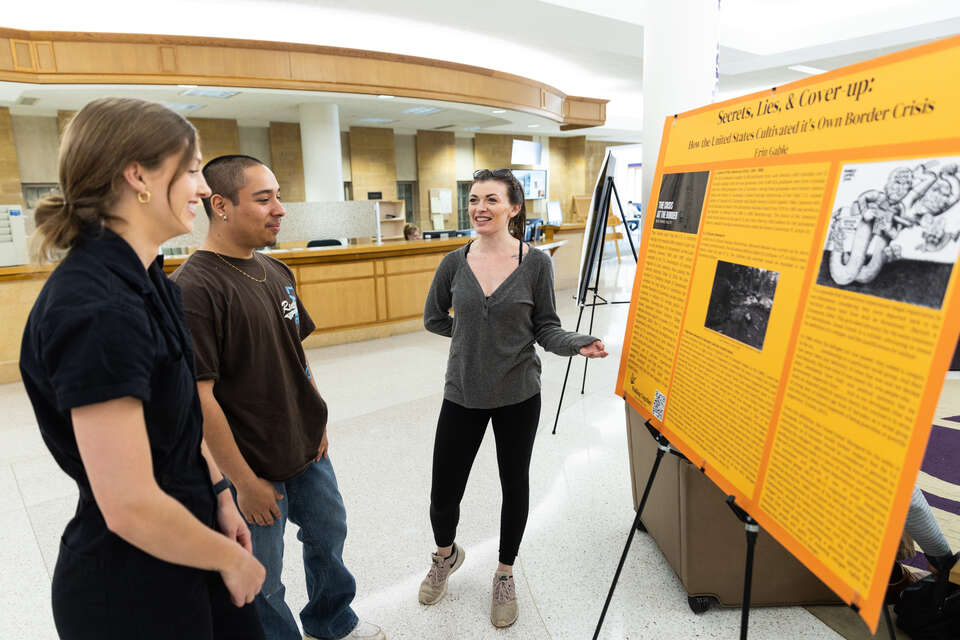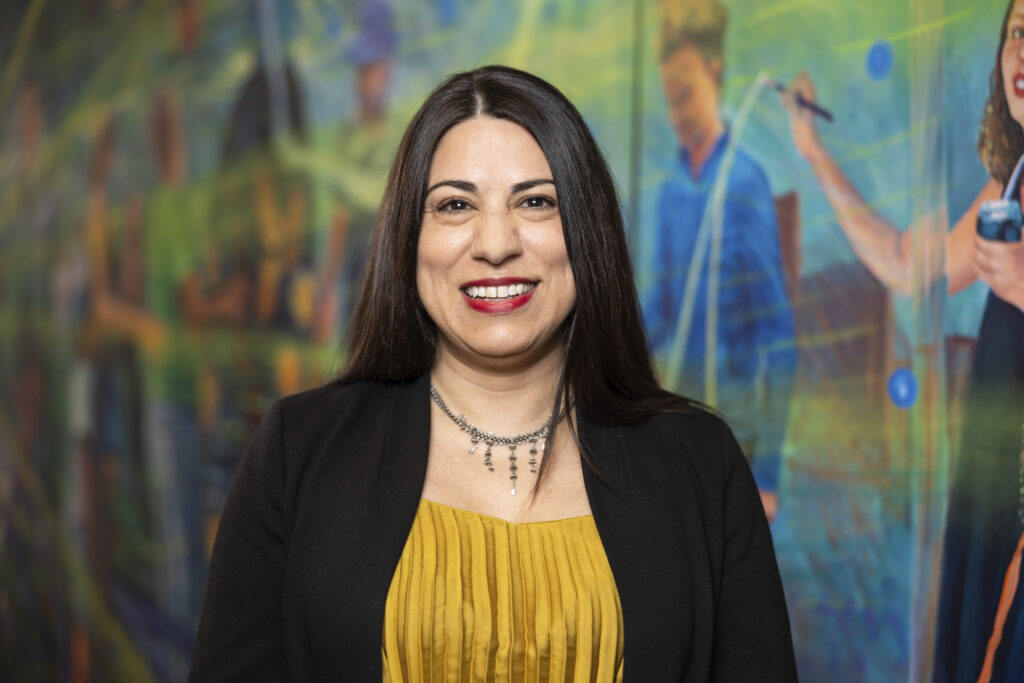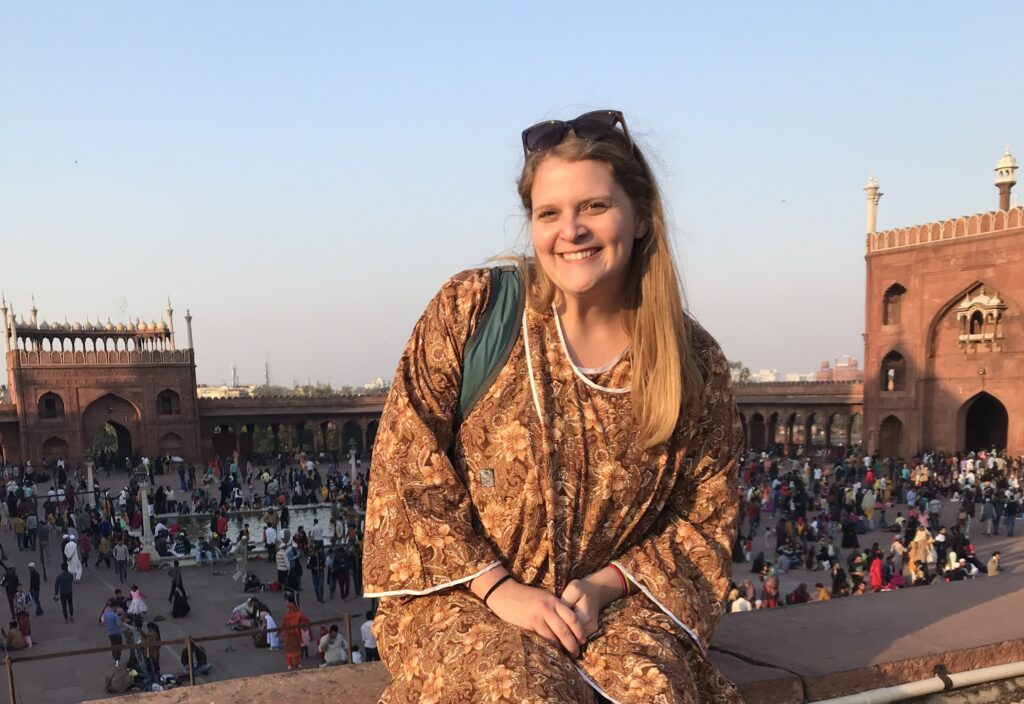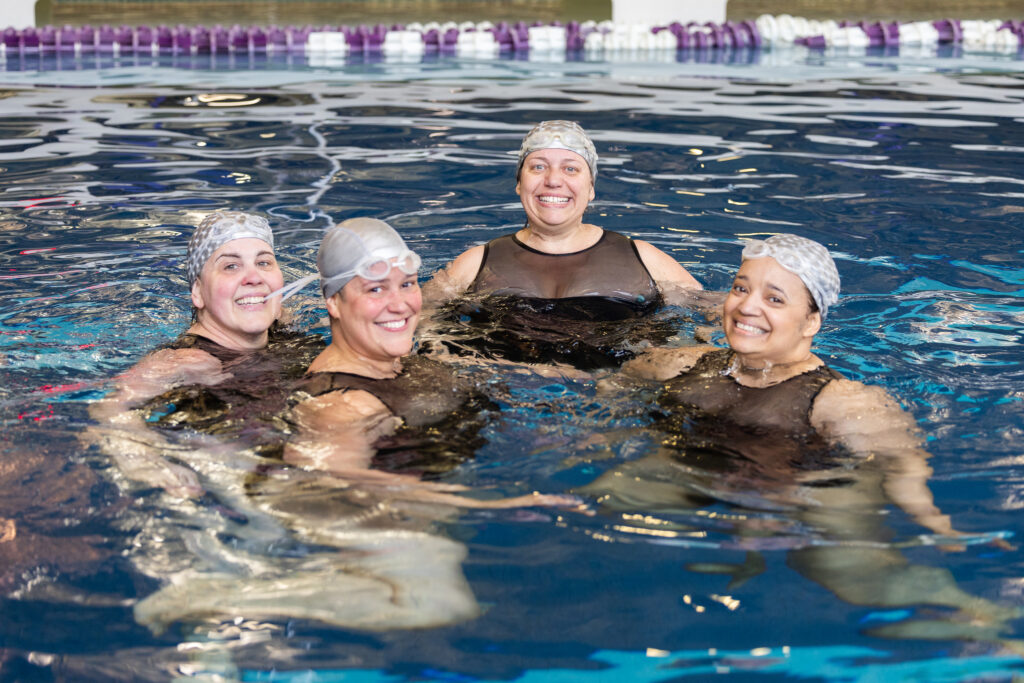As scholars of Latin America, Professors Paola Ehrmantraut and Kari Zimmerman are passionate about an interdisciplinary project they developed approximately three years ago that uplifts immigrant voices while showcasing student research.
Walking Together, a digital research hub officially launched at the University of St. Thomas in August 2021, is designed to celebrate the history of migration, immigration and displacement. Funded in 2020 by a Research in Action grant at the College of Arts and Sciences, the project currently focuses on Minnesota’s diverse Latinx community – a population that has increased by 24% since 2010.
The vibrant bilingual site at walkingtogethermn.com displays student essays, a podcast, a collection of online resources, and an interactive map that accesses census data so site visitors can see how immigration has impacted Latinx communities across the state.
“When we started this there was and still is a lot of bias and a lot of negative portrayals of immigrants, particularly of those from the southern border,” said Ehrmantraut, an associate professor of Spanish and Endowed Chair in the Humanities. “We wanted to create a project that would counter that with research and with a sense of intellectual rigor.”

Fourth-year St. Thomas student Freddy Flores Dominguez, who helped develop the website, can relate. “Our project is bringing to light who the Midwestern Latinx demographic is,” he said. As a first-generation college student whose parents were farmworkers before they immigrated to the U.S, Flores Dominguez said he’s tired of seeing the media portray Hispanic immigrants as criminals when many instead are hardworking contributors to society.
“This project not only helps the newly arriving immigrants but also the generations that come after those immigrants,” the justice and peace studies major said.
Zimmerman, a professor of history and director of the Latin American and Caribbean Studies Program, said: “This project has taught me how important it is to listen to my peers, the students and the community. When you’re an academic, you’re trained to be an expert, but when you’re doing community engagement work, that requires a lot of listening, presenting your research responsibly, and capturing as many voices as possible.”
For now, Zimmerman, Ehrmantraut and the other faculty and student researchers are focusing the Walking Together research on one diverse demographic, but they seek to expand it.
“We started with the Latinx community because that’s where we’re more knowledgeable with our own experiences and research, but the idea is to include other immigrant communities that have historically been displaced,” Ehrmantraut said. “This is just the beginning.”
Related Content








